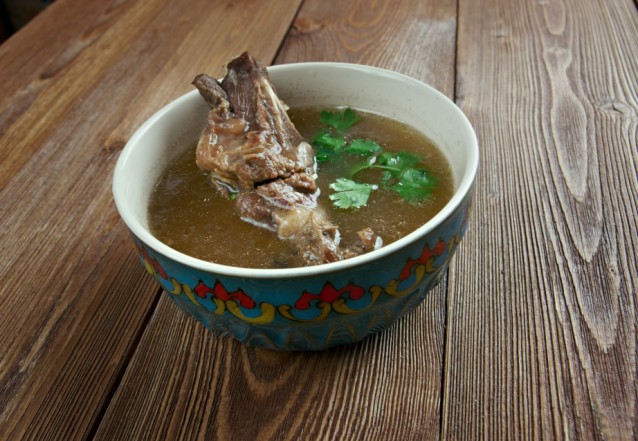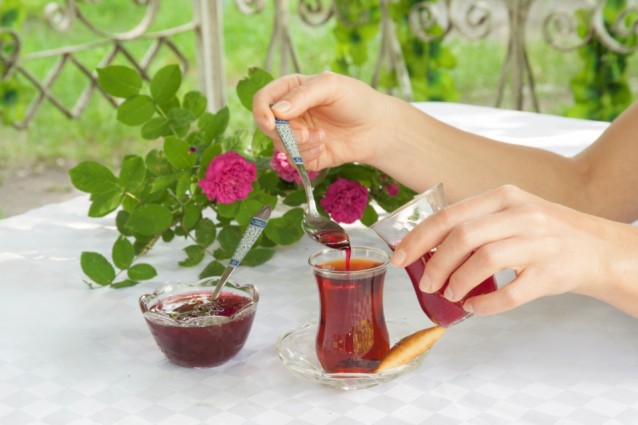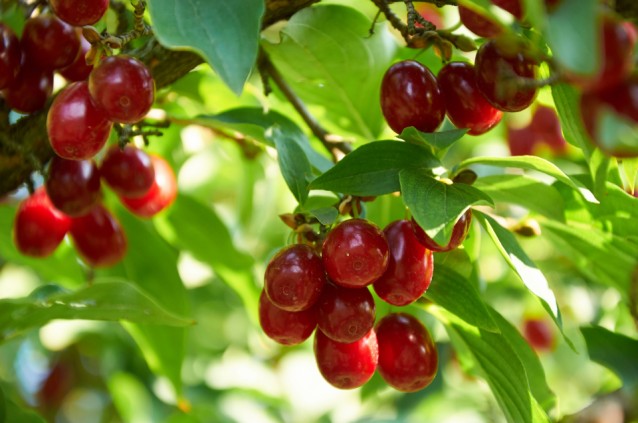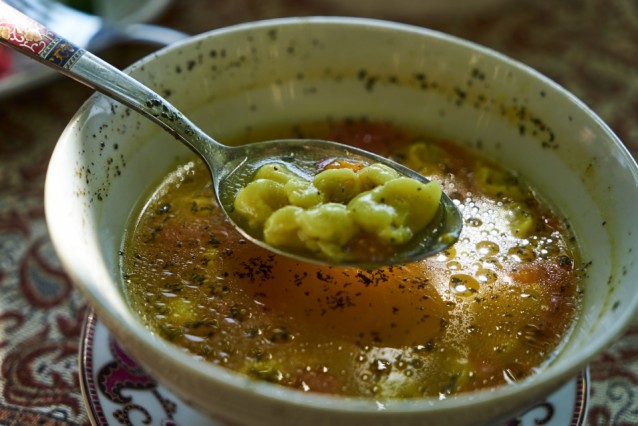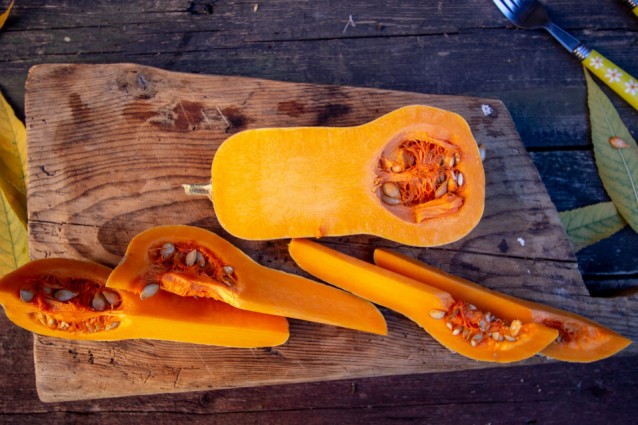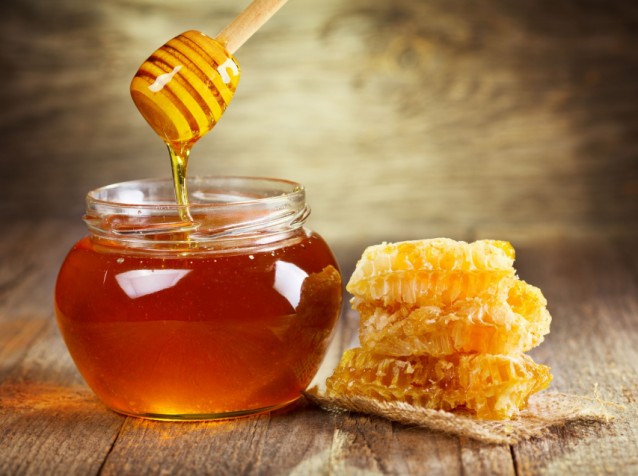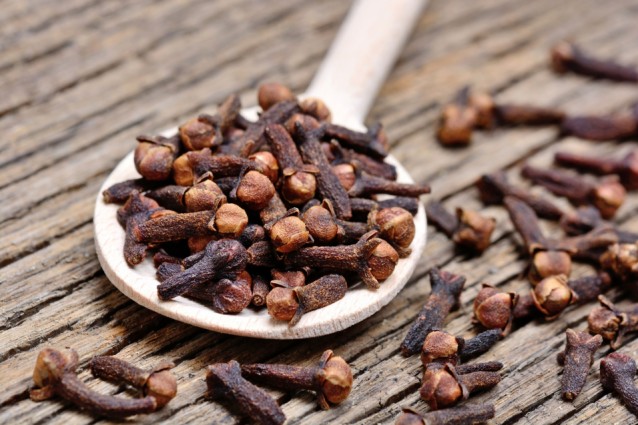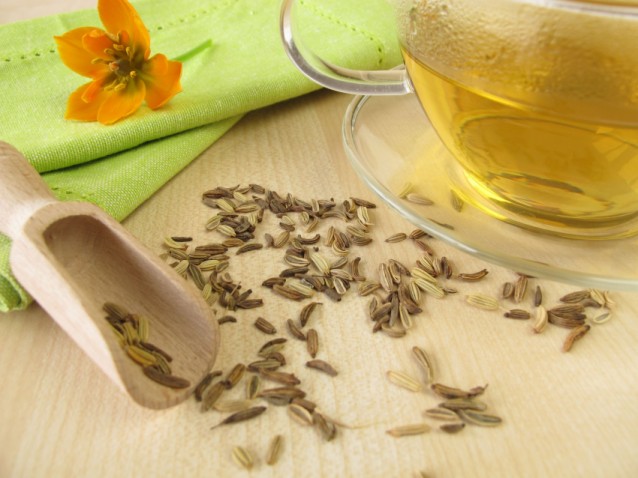When my family first came to Azerbaijan, it was approaching winter time. The weather was getting colder, rain was often whipped about by Baku’s fierce winds, and my kids’ immune systems were under attack by the vicious skvoznyak (the Russian word for “draught.” Moving air is often cited as the cause of all sorts of illness in this area of the world). It was only a matter of time before someone got sick. When my daughter woke up with a cold, we were not terribly surprised, and my wife immediately implemented our American medical traditions of rest, 7-Up, crackers and chicken-noodle soup.
Later that day, my wife and I both happened to have language lessons with separate tutors. When we saw each other at dinner time, we shared how both of our tutors had encouraged us to purchase zogal mürabəsi (Cornelian cherry preserves) and make some tea for our daughter. It seemed as though we had stumbled onto part of Azerbaijan’s medical tradition.
Months later, I suffered a foot injury that left me hobbling around Baku on crutches for a few weeks. I again used my cultural knowledge, this time in the form of wraps, ice, and stretching. Again, I was also greeted with advice from an Azerbaijani perspective. This time, neighbours, co-workers, the man at the vegetable stand, and even total strangers kept telling me that I needed to go eat a bowl of khash (trotter soup).
As winter is upon us again and many are fighting back illness, I decided to ask around and learn more about the foods Azerbaijanis traditionally go to when they are sick.
Warning: As you read the list below, keep in mind that this is being written from an ethnographic standpoint and should not be taken as medical advice. If you have a health problem, you should seek professional medical assistance, and always consult your physician before trying any form of folk remedies.
Khash (Trotter Soup)
A heavy soup made from boiled cows feet, this Azerbaijani dish comes wrapped in history and tradition. It is consumed after weddings or at early-morning men-only gatherings and is believed to help cure bone injuries and hangovers. It is also said to have antibiotic properties. Many say it is best consumed with vodka or not at all. Don’t miss our article My First Khash – http://www.visions.az/en/news/468/41b11abe/
Goat fat
Do you have a fever and muscle soreness? Have someone take a nice handful of goat fat and rub it on your back. Leave it there for a while and it will help you sweat the infection out your pores. This used to be much more common, especially in villages, but fewer people have a supply of goat fat on hand at home these days.
Rose water
There is a special type of rose that grows in the Qabala and Zaqatala regions whose petals are used for making jams and boiled to produce a red liquid with a distinctly floral taste. A small teaspoon is mixed in with tea and some claim that this can help with heart problems.
Cornelian cherries
Supposedly fresh Cornelian cherries can both act as an antidiarrheal agent and as a diuretic. In their raw form they are high in vitamin C and antioxidants and can help to boost immune function. They are often made into jam and mixed in with a hot cup of tea or eaten straight from the jar to help treat colds and sore throats.
Soups for colds
When cold and flu season roll out, so do the soups. Dushbere, a soup made with small meat dumplings, khengel soup, made with larger meat dumplings, and various soups made from sorrel leaves are all on the menu to combat coughs, sniffles and congestion.
Pumpkin
Nothing sucks the fun out of life like having parasites. When the time comes to evict them, or to prevent them from taking up residence in the first place, Azerbaijanis’ go-to staple is pumpkin. Whether you like the flesh, the seeds, or the juice, it can supposedly help keep you free from unwanted internal guests.
Kumquat
This tasty little fruit grows in Nakhchivan and resembles a tiny orange, but you can eat it with peel and all. Many locals swear that it helps them with their arthritis pain, keeping their diabetes in check, and even with lowering their high blood pressure.
Natural Honey
As an Azerbaijani friend told me, You can use honey for everything! Mix it in with tea, eat it straight, or mix it with crushed garlic and ginger to treat colds and infections. Some recommend applying it topically to wounds or mixing it with olive oil to treat skin irritations or hemorrhoids.
Cloves
When Azerbaijanis have a toothache, some are quick to turn to cloves. They place a few buds in their mouth close to the pain or abscess and suck on them until they soften, and then slowly chew them to ease the pain.
Fennel tea
This one helps you sleep, but not directly. It is used to help treat cholic and gas in infants and calm down cranky little ones. It is a blessing to babies and mums alike.
